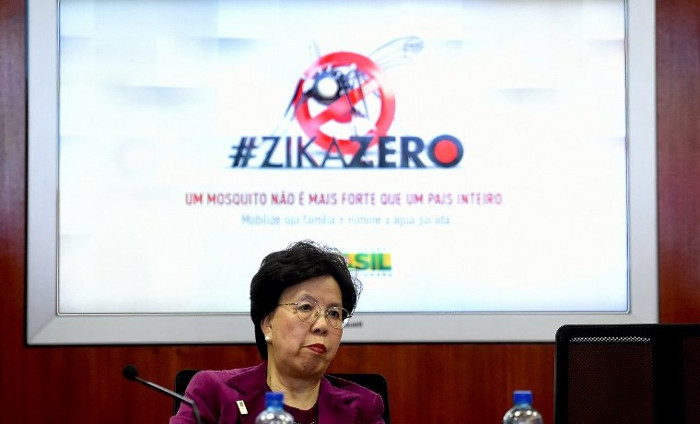WHO: The latest research on Zika virus is very worrying
On March 8, the World Health Organization (WHO) recommends that pregnant women do not come to Zika epidemic areas and emphasize more and more evidence that the close relationship between Zika virus and Brain atrophy disease in the fetus.
Earlier, the WHO only warned of the risk of infection for pregnant women when traveling to areas with Zika virus in South America and the Caribbean. However, in this announcement, WHO Director General Margaret Chan said the latest research on Zika virus is " very disturbing".
Ms. Chan warned that Zika virus not only causes fetal atrophy of the fetus but can cause death, developmental delay and diseases related to the central nervous system for the fetus.
According to Margaret Chan, WHO cannot wait for accurate evidence to make new recommendations.

WHO Director-General Margaret Chan spoke at a meeting in Brasilia, Brazil.(Source: AFP / VNA).
WHO also urges pregnant women who have husbands or boyfriends to return from the plague area to take protective measures when having sex or stop having sex during pregnancy.
However, this new announcement by WHO does not limit normal travel and trade with countries or regions with epidemics.
On 1/2 last, WHO has declared a state of emergency caused by Zika disease.The virus is in danger of exploding in America with about 3-4 million people will be infected this year. There is evidence that the close association between Zika virus and fetal brain atrophy and Guillain Barré immune system disorder syndrome can be fatal. However, the WHO said accurate conclusions could only be known by the middle of this year.
Among the countries that are being ravaged by Zika virus, Brazil is the worst affected. It is estimated that there are more than 1.5 million people infected with Zika virus since 2015, of which 583 cases of brain atrophy have been confirmed since October 2015.
According to WHO, the spread of Zika virus may be wider, because mosquito Aedis aegypti - the vector of Zika virus transmission, has appeared in 130 countries around the world.
Currently, about 50 countries have recorded cases of infection. So far, there has been no vaccine or special treatment for Zika virus. The most common symptoms of viral infections are fever, conjunctivitis, headache, muscle and joint pain, rash.
- Zika virus spreads to 3 neighboring countries of Vietnam
- Process of Zika virus testing in Vietnam
- What do people know about Zika?
- Zika virus in Brazil is similar to Zika virus in Asia
- Common questions when Zika virus spread in Saigon
- Translate Zika spread in Saigon
- Vietnam discovered the first 2 cases of Zika virus
- The US discovered the first death due to Zika virus
- 5 basic knowledge everyone should know about Zika virus
- Zika virus spreads 16 districts in Saigon
- Announcing new testing methods for Zika virus detection in 20 minutes
- America tried to successfully vaccinate against Zika virus in animals
 Green tea cleans teeth better than mouthwash?
Green tea cleans teeth better than mouthwash? Death kiss: This is why you should not let anyone kiss your baby's lips
Death kiss: This is why you should not let anyone kiss your baby's lips What is salmonellosis?
What is salmonellosis? Caution should be exercised when using aloe vera through eating and drinking
Caution should be exercised when using aloe vera through eating and drinking